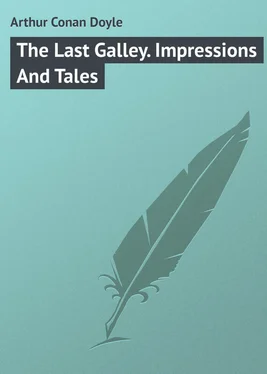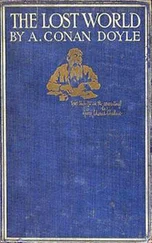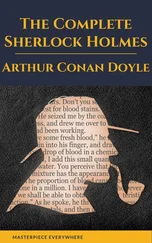Arthur Conan Doyle - The Last Galley. Impressions And Tales
Здесь есть возможность читать онлайн «Arthur Conan Doyle - The Last Galley. Impressions And Tales» — ознакомительный отрывок электронной книги совершенно бесплатно, а после прочтения отрывка купить полную версию. В некоторых случаях можно слушать аудио, скачать через торрент в формате fb2 и присутствует краткое содержание. Жанр: foreign_prose, на английском языке. Описание произведения, (предисловие) а так же отзывы посетителей доступны на портале библиотеки ЛибКат.
- Название:The Last Galley. Impressions And Tales
- Автор:
- Жанр:
- Год:неизвестен
- ISBN:нет данных
- Рейтинг книги:3 / 5. Голосов: 1
-
Избранное:Добавить в избранное
- Отзывы:
-
Ваша оценка:
- 60
- 1
- 2
- 3
- 4
- 5
The Last Galley. Impressions And Tales: краткое содержание, описание и аннотация
Предлагаем к чтению аннотацию, описание, краткое содержание или предисловие (зависит от того, что написал сам автор книги «The Last Galley. Impressions And Tales»). Если вы не нашли необходимую информацию о книге — напишите в комментариях, мы постараемся отыскать её.
The Last Galley. Impressions And Tales — читать онлайн ознакомительный отрывок
Ниже представлен текст книги, разбитый по страницам. Система сохранения места последней прочитанной страницы, позволяет с удобством читать онлайн бесплатно книгу «The Last Galley. Impressions And Tales», без необходимости каждый раз заново искать на чём Вы остановились. Поставьте закладку, и сможете в любой момент перейти на страницу, на которой закончили чтение.
Интервал:
Закладка:
"I found myself among buildings, and one of them was on fire. I saw the flames spoutin' through the roof. I ran on, and then I was alone among the buildings. Some one ran across in front o' me. It was a woman. I caught her by the arm, and I took her chin and turned her face so as the light of the fire would strike it. Whom think you that it was, Maggie?"
His wife moistened her dry lips. "It was I," she said.
He looked at her in surprise. "That's a good guess," said he. "Yes, it was just you. Not merely like you, you understand. It was you – you yourself. I saw the same soul in your frightened eyes. You looked white and bonny and wonderful in the firelight. I had just one thought in my head – to get you awa' with me; to keep you all to mysel' in my own home somewhere beyond the hills. You clawed at my face with your nails. I heaved you over my shoulder, and I tried to find a way oot of the light of the burning hoose and back into the darkness.
"Then came the thing that I mind best of all. You're ill, Maggie. Shall I stop? My God! You nave the very look on your face that you had last night in my dream. You screamed. He came runnin' in the firelight. His head was bare; his hair was black and curled; he had a naked sword in his hand, short and broad, little more than a dagger. He stabbed at me, but he tripped and fell. I held you with one hand, and with the other – "
His wife had sprung to her feet with writhing features.
"Marcus!" she cried. "My beautiful Marcus! Oh, you brute! you brute! you brute!" There was a clatter of tea-cups as she fell forward senseless upon the table.
They never talk about that strange isolated incident in their married life. For an instant the curtain of the past had swung aside, and some strange glimpse of a forgotten life had come to them. But it closed down, never to open again. They live their narrow round – he in his shop, she in her household – and yet new and wider horizons have vaguely formed themselves around them since that summer evening by the crumbling Roman fort.
An iconoclast
It was daybreak of a March morning in the year of Christ 92. Outside the long Semita Alta was already thronged with people, with buyers and sellers, callers and strollers, for the Romans were so early-rising a people that many a Patrician preferred to see his clients at six in the morning. Such was the good republican tradition, still upheld by the more conservative; but with more modern habits of luxury, a night of pleasure and banqueting was no uncommon thing. Thus one, who had learned the new and yet adhered to the old, might find his hours overlap, and without so much as a pretence of sleep come straight from his night of debauch into his day of business, turning with heavy wits and an aching head to that round of formal duties which consumed the life of a Roman gentleman.
So it was with Emilius Flaccus that March morning. He and his fellow senator, Caius Balbus, had passed the night in one of those gloomy drinking bouts to which the Emperor Domitian summoned his chosen friends at the high palace on the Palatine. Now, having reached the portals of the house of Flaccus, they stood together under the pomegranate-fringed portico which fronted the peristyle and, confident in each other's tried discretion, made up by the freedom of their criticism for their long self-suppression of that melancholy feast.
"If he would but feed his guests," said Balbus, a little red-faced, choleric nobleman with yellow-shot angry eyes. "What had we? Upon my life, I have forgotten. Plovers' eggs, a mess of fish, some bird or other, and then his eternal apples."
"Of which," said Flaccus, "he ate only the apples. Do him the justice to confess that he takes even less than he gives. At least they cannot say of him as of Vitellius, that his teeth beggared the empire."
"No, nor his thirst either, great as it is. That fiery Sabine wine of his could be had for a few sesterces the amphora. It is the common drink of the carters at every wine-house on the country roads. I longed for a glass of my own rich Falernian or the mellow Coan that was bottled in the year that Titus took Jerusalem. Is it even now too late? Could we not wash this rasping stuff from our palates?"
"Nay, better come in with me now and take a bitter draught ere you go upon your way. My Greek physician Stephanos has a rare prescription for a morning head. What! Your clients await you? Well, I will see you later at the Senate house."
The Patrician had entered his atrium, bright with rare flowers, and melodious with strange singing birds. At the jaws of the hall, true to his morning duties, stood Lebs, the little Nubian slave, with snow-white tunic and turban, a salver of glasses in one hand, whilst in the other he held a flask of a thin lemon-tinted liquid. The master of the house filled up a bitter aromatic bumper, and was about to drink it off, when his hand was arrested by a sudden perception that something was much amiss in his household. It was to be read all around him – in the frightened eyes of the black boy, in the agitated face of the keeper of the atrium, in the gloom and silence of the little knot of ordinarii, the procurator or major-domo at their head, who had assembled to greet their master. Stephanos the physician, Cleios the Alexandrine reader, Promus the steward each turned his head away to avoid his master's questioning gaze.
"What in the name of Pluto is the matter with you all?" cried the amazed senator, whose night of potations had left him in no mood for patience. "Why do you stand moping there? Stephanos, Vacculus – is anything amiss? Here, Promus, you are the head of my household. What is it, then? Why do you turn your eyes away from me?"
The burly steward, whose fat face was haggard and mottled with anxiety, laid his hand upon the sleeve of the domestic beside him.
"Sergius is responsible for the atrium, my lord. It is for him to tell you the terrible thing that has befallen in your absence."
"Nay, it was Datus who did it. Bring him in, and let him explain it himself," said Sergius in a sulky voice.
The patience of the Patrician was at an end. "Speak this instant, you rascal!" he shouted angrily. "Another minute, and I will have you dragged to the ergastulum, where, with your feet in the stocks and the gyves round your wrists, you may learn quicker obedience. Speak, I say, and without delay."
"It is the Venus," the man stammered; "the Greek Venus of Praxiteles."
The senator gave a cry of apprehension and rushed to the corner of the atrium, where a little shrine, curtained off by silken drapery, held the precious statue, the greatest art treasure of his collection – perhaps of the whole world. He tore the hangings aside and stood in speechless anger before the outraged goddess. The red perfumed lamp which always burned before her had been spilled and broken; her altar fire had been quenched, her chaplet had been dashed aside. But worst of all – insufferable sacrilege! – her own beautiful nude body of glistening Pantelic marble, as white and fair as when the inspired Greek had hewed it out five hundred years before, had been most brutally mishandled. Three fingers of the gracious outstretched hand had been struck off, and lay upon the pedestal beside her. Above her delicate breast a dark mark showed, where a blow had disfigured the marble. Emilius Flaccus, the most delicate and judicious connoisseur in Rome, stood gasping and croaking, his hand to his throat, as he gazed at his disfigured masterpiece. Then he turned upon his slaves, his fury in his convulsed face; but, to his amazement, they were not looking at him, but had all turned in attitudes of deep respect towards the opening of the peristyle. As he faced round and saw who had just entered his house, his own rage fell away from him in an instant, and his manner became as humble as that of his servants.
Читать дальшеИнтервал:
Закладка:
Похожие книги на «The Last Galley. Impressions And Tales»
Представляем Вашему вниманию похожие книги на «The Last Galley. Impressions And Tales» списком для выбора. Мы отобрали схожую по названию и смыслу литературу в надежде предоставить читателям больше вариантов отыскать новые, интересные, ещё непрочитанные произведения.
Обсуждение, отзывы о книге «The Last Galley. Impressions And Tales» и просто собственные мнения читателей. Оставьте ваши комментарии, напишите, что Вы думаете о произведении, его смысле или главных героях. Укажите что конкретно понравилось, а что нет, и почему Вы так считаете.












